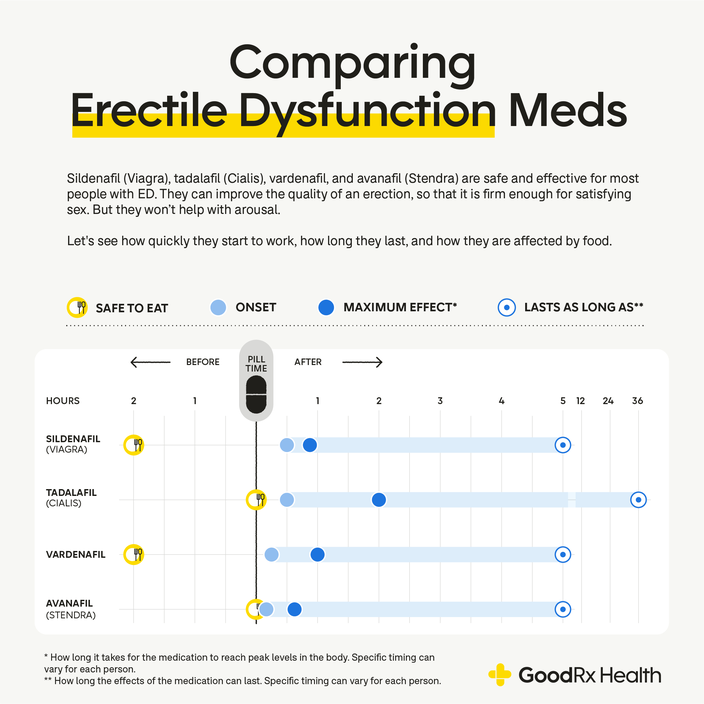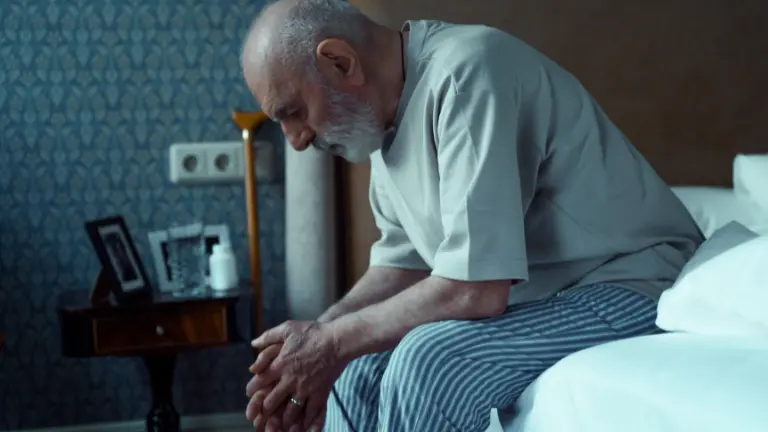Pilots may take Cialis, but must consult with an aviation medical examiner. It is crucial to consider the medication’s effects and potential side effects.
Can pilots take Cialis? Learn about FAA regulations, safety concerns, and how this ED medication may affect a pilot’s ability to fly.
Cialis, known generically as tadalafil, is a prescription medication commonly used to treat erectile dysfunction. Pilots are responsible for ensuring their ability to safely operate an aircraft is not compromised. Before taking Cialis, pilots should seek guidance from a certified aviation medical examiner (AME) to understand the implications for their medical certification and flight safety.
The Federal Aviation Administration (FAA) has specific guidelines regarding the use of any medication that could affect a pilot’s performance. As safety is paramount in aviation, understanding the onset of action, duration, and any possible interactions with other medications or conditions is essential. Clear communication with an AME can help determine if Cialis is a suitable option without jeopardizing the pilot’s health or the safety of their passengers.
Introduction To Pilot Health Requirements
Flying a plane requires sharp skills and good health. Pilots must meet strict health standards to ensure safety. A key question often arises: Can pilots take medications like Cialis? Understanding the health requirements for pilots is crucial.
Physical Fitness For Pilots
Pilots need to be physically fit. They must pass regular health checks. These checks ensure pilots can handle the stress of flying. Good vision, heart health, and mental wellness are essential. Let’s look at what’s needed for a pilot to fly safely.
- Excellent vision: Pilots must see clearly, with or without glasses.
- Stable heart rate: A healthy heart is vital for handling in-flight pressure.
- Good hearing: Pilots need to hear and communicate without issues.
Medical Certifications And Aviation
Pilots need medical certificates. These certificates show they are healthy. The Federal Aviation Administration (FAA) issues these certificates. There are three classes of medical certificates. Each class has different requirements.
A table below shows the main differences:
| Certificate Class | Validity Period | Requirements |
|---|---|---|
| First Class | 6 to 12 months | For airline transport pilots |
| Second Class | 12 months | For commercial pilots |
| Third Class | 24 to 60 months | For private pilots |
Each certificate requires a thorough medical examination. Pilots must disclose all medications they take, including Cialis. The FAA decides if a pilot can fly with certain medications. Safety is always the top priority.
Cialis: A Brief Overview
Welcome to our comprehensive guide on Cialis, a medication that has garnered significant attention across various professions, including aviation. In this section, we delve into what Cialis is and its common uses and effects, particularly considering the unique demands of pilots and the importance of their health and safety.
What Is Cialis?
Cialis, known by its generic name tadalafil, is a medication primarily used to treat erectile dysfunction (ED). It works by increasing blood flow to the penis, helping men achieve and maintain an erection.
Common Uses And Effects
Cialis serves several purposes beyond its main indication for ED. It is also prescribed for symptoms of benign prostatic hyperplasia (BPH) and, in some cases, pulmonary arterial hypertension. The drug helps relax the muscles in the prostate and bladder, which can ease BPH symptoms. For those with pulmonary arterial hypertension, Cialis improves exercise capacity by relaxing blood vessels in the lungs to allow for better blood flow.
- Improves erectile function: Cialis is effective for ED treatment.
- Alleviates BPH symptoms: It can reduce discomfort associated with an enlarged prostate.
- Enhances exercise ability: Particularly in pulmonary arterial hypertension patients.
When considering the effects of Cialis, it is important to note the potential side effects. Common reactions can include headaches, indigestion, back pain, muscle aches, flushed skin, and stuffy or runny nose. These side effects usually disappear after a few hours. However, if symptoms persist or become bothersome, consulting a healthcare provider is crucial.
It is also essential for those in the aviation field to understand the implications of using Cialis while performing their duties. Safety is paramount, and any medication, including Cialis, should be discussed with a medical professional to ensure it does not impair the ability to operate an aircraft.
Aviation Medical Standards And Medication
The world of aviation demands high standards, including for pilots’ health. Aviation Medical Standards and Medication play a crucial role. They ensure pilots are fit to fly. This includes rules on medicine use. Let’s explore how this applies to pilots considering Cialis.
Faa Regulations On Prescription Drugs
The Federal Aviation Administration (FAA) sets rules for pilots. These rules include which medicines pilots can take. The goal is to keep everyone safe. The FAA lists approved and banned drugs. Pilots must check this list before taking any medication.
- Check the FAA’s list: See if a drug is allowed.
- Consult an Aviation Medical Examiner (AME): Get expert advice.
- Report new medications: Tell the FAA about any changes.
Assessing Medication Impact On Performance
Not all drugs affect pilots the same way. Some might make it hard to fly. It’s important to know how a drug like Cialis might impact flying.
- Understand the effects: Learn how Cialis affects you.
- Monitor your body’s reaction: Notice any changes in how you feel or act.
- Consult regularly with your AME: Keep them informed of your health.
By following these steps, pilots can ensure they meet aviation medical standards. They can also make sure their medication, like Cialis, is safe for flying.
Evaluating The Risks: Cialis In The Cockpit
Evaluating the Risks: Cialis in the Cockpit explores the balance between the benefits and risks of pilots taking Cialis. This medication, known for treating erectile dysfunction, has implications for those who navigate our skies. Understanding these can help ensure safety in aviation.
Potential Side Effects
Cialis, like any medication, comes with side effects. For pilots, some side effects could impact their ability to fly safely. These include:
- Headaches – Can distract from focus.
- Indigestion – Might cause discomfort while flying.
- Back pain – Could limit movement in the cockpit.
- Blurred vision – Essential for reading instruments.
- Dizziness – Affects balance and spatial orientation.
Cialis And Pilot Decision-making
The effect of Cialis on pilot decision-making is complex. Key points include:
- Medication can alter judgment.
- It may impact reaction times.
- Pilots must know their bodies’ response.
- Consulting a health professional is crucial.
The balance between treating health issues and maintaining cockpit safety is delicate. Pilots taking Cialis must closely monitor its effects on their performance. Communication with healthcare providers and adherence to aviation medical guidelines are essential steps in this process.
Case Studies: Pilots And Prescription Drug Use
Pilots face strict regulations on medication use. Understanding how prescription drugs like Cialis affect their performance is crucial. We explore real-life scenarios in our case studies on pilots and prescription drug use.
Incidents Involving Medications
Flight safety is paramount. Certain medications can impact a pilot’s ability to fly. We review incidents where pilots took prescription drugs like Cialis.
- Case 1: A pilot experienced dizziness after taking Cialis before a flight.
- Case 2: Another pilot faced visual disturbances, a known side effect of this medication.
These incidents highlight the risks associated with flying under the influence of specific prescriptions.
Lessons Learned And Best Practices
From the cases studied, key takeaways emerge for pilot safety.
- Consult aviation medical examiners before using any prescription drug.
- Understand the side effects of medications like Cialis.
- Plan flights allowing enough time for drugs to clear the system.
Following these best practices ensures pilots maintain the highest safety standards.
:max_bytes(150000):strip_icc()/VWH-GettyImages-1401010832-27bd92a867a04cd6b7266f8fe72014fb.jpg)
Credit: www.verywellhealth.com
Navigating Health And Career
Pilots face unique health challenges due to their demanding careers. Balancing personal health with the stringent medical requirements of aviation is crucial. Medications like Cialis, used for treating erectile dysfunction, can raise questions about their compatibility with flying duties. Let’s explore how pilots can manage treatment while maintaining their flight status.
Balancing Treatment With Aviation Duties
Flying a plane requires peak mental and physical condition. Pilots must ensure medications do not impair their abilities. Cialis, known generically as tadalafil, can have side effects. It is essential to consider these when planning flight schedules.
Pilots should:
- Understand the timing of medication and its effects.
- Assess personal response to treatment.
- Plan flights considering potential side effects.
- Stay in communication with health care providers.
Always prioritize safety over all else. This balance ensures health management does not compromise flight duties.
Consulting Aviation Medical Examiners
An Aviation Medical Examiner (AME) plays a pivotal role in a pilot’s career. For medication like Cialis, consulting an AME is a must. They provide clearance and guidance.
Pilots should:
- Book regular check-ups with an AME.
- Discuss all medications and treatments.
- Understand the impact on medical certificates.
- Follow the AME’s advice to stay fit for flying.
Regular communication with an AME helps pilots navigate the intersection of health and career effectively. It ensures pilots meet the medical standards required for safe flying.
Cialis Under The Lens Of Aviation Authorities
When it comes to aviation, safety is paramount. Pilots must be in top shape to fly. Yet, some pilots may need medications for personal health. Cialis, a drug for erectile dysfunction, has come under scrutiny. Can pilots take this medication and still ensure the skies are safe?
Faa’s Stance On Erectile Dysfunction Medications
The Federal Aviation Administration (FAA) has clear rules. They know pilots might need these meds. But they need to be sure it’s safe. They look at side effects like blood pressure changes. These can affect a pilot’s abilities.
- Medications reviewed on a case-by-case basis
- Must report any use of erectile dysfunction drugs
- Pilots must wait 36 hours after use before flying
International Aviation Guidelines
Around the world, aviation rules can vary. Many follow the International Civil Aviation Organization (ICAO) standards. These groups urge caution with medications like Cialis. They suggest pilots check with medical examiners first.
| Country | Medication Approval | Waiting Period |
|---|---|---|
| USA (FAA) | Yes, with conditions | 36 hours |
| Canada (Transport Canada) | Yes, with conditions | Varies |
| UK (CAA) | Yes, with conditions | Varies |
Each country’s aviation authority may set different rules. It’s key for pilots to know these before taking erectile dysfunction drugs.

Credit: www.goodrx.com
Advice For Pilots Considering Cialis
Many pilots wonder if they can take Cialis. Here’s some advice.
Communicating With Healthcare Providers
First, talk to a doctor. This is very important. Doctors know best about health and flying. Explain your job as a pilot. Your doctor will understand. They will tell you if Cialis is safe for you. Remember, honesty is key.
- Ask about side effects.
- Discuss how Cialis might affect flying.
- Learn about safe doses.
Planning For Non-flying Periods
Cialis might affect your flying. Plan ahead. Try Cialis when you’re not working. This way, you can see how it affects you. Health comes first, always. Make sure you feel okay. Then you can fly safely.
- Choose a day off to try Cialis.
- Note any changes in how you feel.
- Talk to your doctor about these changes.
Remember, flying safely is most important. Always put safety first. Following these steps helps make sure you and everyone else stay safe.
Conclusion: Safe Skies And Healthy Lives
Conclusion: Safe Skies and Healthy Lives focus on pilot well-being. Pilots need clear judgment up high. Medicines like Cialis concern some. Yet, health and safety can align.
Striking A Balance
Pilots’ health matters. A balance is key. Cialis helps with medical issues. It must not harm flying skills. Doctors and pilots work together. They ensure meds are safe to use.
- Medical check-ups are rigorous.
- Cialis effects are monitored.
- Pilot performance stays sharp.
Future Directions In Aviation Health
Aviation health evolves. New research guides policies. Pilots’ well-being is the priority. Studies on Cialis will continue. The goal is safe skies for all.
- Research on meds like Cialis expands.
- Health protocols update regularly.
- Safety remains the top focus.

Credit: www.assuredpharmacy.co.uk
Frequently Asked Questions
Is Cialis Approved For Pilots By The Faa?
Cialis is not explicitly banned by the FAA for pilots. However, pilots must wait 36 hours after taking Cialis before flying to ensure no adverse effects impact their ability to operate an aircraft safely.
How Does Cialis Impact Flight Performance?
Cialis can cause side effects like headaches and dizziness. Such effects may impair a pilot’s reaction time and decision-making skills, which are critical for safe flight operations. Pilots should be cautious and monitor their reactions to the medication.
What Are The Medical Restrictions For Pilots Using Cialis?
Pilots using Cialis must adhere to the FAA’s 36-hour “no fly” rule post-ingestion to avoid potential side effects that could compromise flight safety. Consulting with an Aviation Medical Examiner (AME) is also recommended for personalized advice.
Can Pilots With Ed Still Obtain A Medical Certificate?
Pilots with erectile dysfunction (ED) can obtain a medical certificate if their condition and its treatment do not interfere with flying duties. They must disclose their ED treatment to the AME during their medical examination.
Conclusion
Navigating the skies requires peak physical condition and mental clarity. Consultation with healthcare providers is key before pilots consider Cialis or any medication. Safety in aviation is paramount; personal health choices must align with this responsibility. Always prioritize regulatory guidelines and medical advice for a smooth flight ahead.

:max_bytes(150000):strip_icc()/VWH-GettyImages-1237965447-2167cd66d370428aacd3c044c5758037.jpg)



